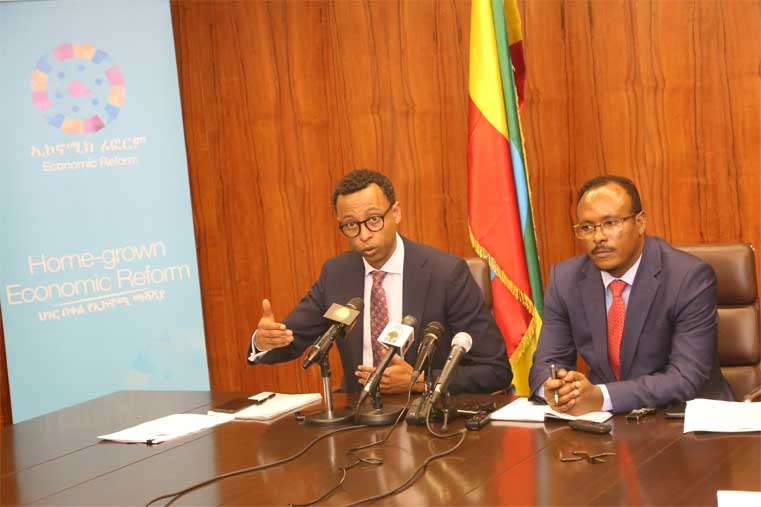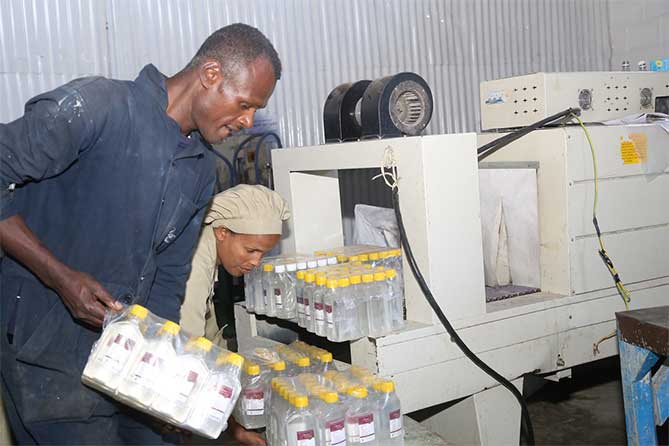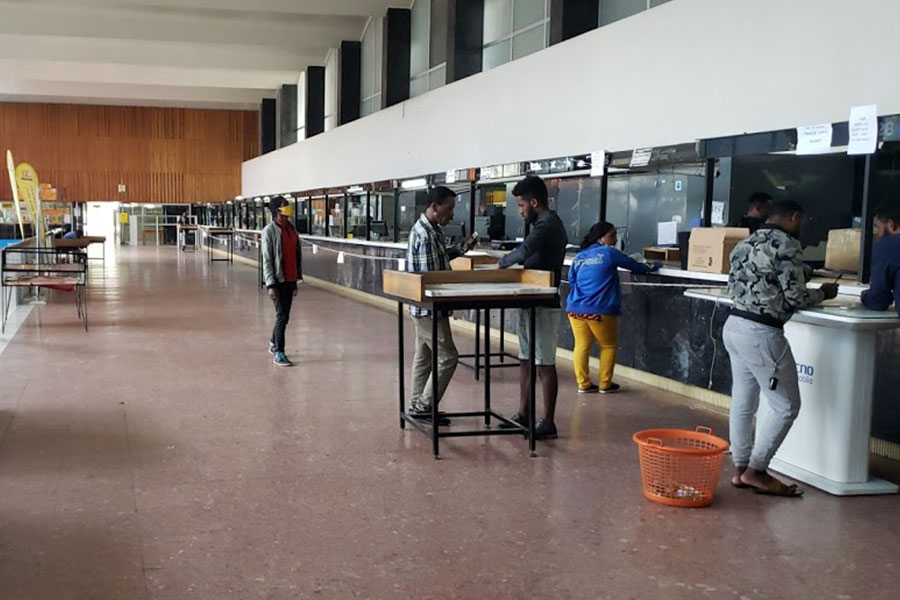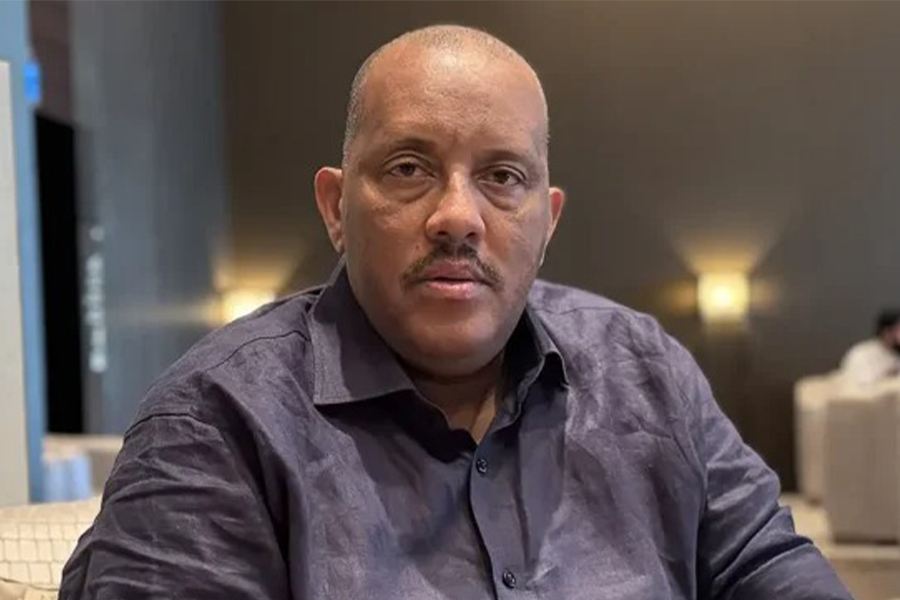
Oct 26 , 2019
By FASIKA TADESSE ( FORTUNE STAFF WRITER )
 A total of 22 companies showed interest in providing the service, according to Brook Taye (PhD), senior advisor at the Ministry of Finance.
A total of 22 companies showed interest in providing the service, according to Brook Taye (PhD), senior advisor at the Ministry of Finance. The Ethiopian Communications Authority, the new telecom and radio frequency regulatory agency, is considering issuing two types of telecommunications licenses for full operators and service providers.
In its draft regulatory framework made available for stakeholder consultation, the Authority proposes to issue unified and class licenses for operators and service providers, respectively.
Companies that will get unified licenses will engage with any telecommunications services including voice call, text, mobile data and wireless and fixed internet services as well as sending and receiving telecommunications to and from Ethiopia. A full-service license will be accompanied by a spectrum license that assigns specific blocks of the radio spectrum.
Class service license holders will buy bundle packages from operators to sell to clients. Class licensees can also engage in infrastructure development such as towers and fibre optic installations.
Unified, aka full-service, licenses will be provided for the three telecom operators, including Ethio telecom and the two new operators that are expected to join the industry within six months.
The draft regulatory framework, which covers details from licensing to regulating the operators, was availed to stakeholders last week before being approved and enacted. The consultation was launched on October 22, 2019, requesting stakeholders to submit their views on the proposed regulatory orientation. The consultation process will be open for four weeks.
The draft framework deals with the Authority’s mandate in setting prices and tariffs, internet and domain name administration, interconnection, dispute resolution, setting bandwidth, conducting quality control, acting in the government's interest and not being captured, i.e. avoiding regulatory capture.
Once the Authority issues licenses for the two new telecom operators and Ethio telecom, it will not grant additional new licenses for at least three years, according to the proposed framework. The new operators can build their infrastructure or else lease and rent Ethio telecom's existing infrastructure.
The two new operators and Ethio telecom will be licensed for 15 years, and their license is subject to renewal. The operators are required to keep at least three years of data on their clients. The Authority will regularly monitor the operators using its own equipment. The licensees are also required to submit their quality of service report to the Authority on a quarterly basis.
The regulatory framework forbids operators from charging extremely low tariffs compared with market prices, cross-subsidising [charging one group of consumers higher prices to artificially reduce prices for another group] and forcing customers to subscribe for bulk service.
It also proposed the operators contribute 1.5pc to 2.5pc of their gross revenue to the Universal Access Fund, which will be used to ensure that communications services are accessible to the largest number of users possible. Once the value is set after the consultation process, the Authority will forward recommendations to the Council of Ministers concerning the sources and amount of contributions to the Universal Access Fund.
During the first three weeks of the consultation process, the Authority will gather views from the stakeholders. It will also hold a conference on November 12, 2019, for a preliminary question-and-answer session with interested parties.
After collecting the feedback, the Authority will conduct a synthesis report and consider viable recommendations, according to Balcha Reba, director-general of the Authority, which was established in August of this year. Balcha, an electrical engineer by profession, has been in the telecom industry for a decade and a half. He was appointed to the post by Prime Minister Abiy Ahmed (PhD) in early September.
‘‘The whole process is expected to be finalised by November 30, 2019,’’ Balcha said.
Preparation of documents for a request for proposals (RFP) will follow the approval of the regulatory framework. The Ministry of Finance and the Authority are in the process of hiring a transaction advisor that will assist the government in the process of screening and licensing the telecom operators.
The RFP is expected to be finalised and sent to operators interested in joining the Ethiopian telecom industry by December 30, according to Balcha.
The Authority is scheduled to finalise all the screening processes and issue the two new licenses by the end of March 2020. Ethio telecom is also required to re-register and obtain a license with the new operators.
Liberalising the telecom industry, which has been under state control for over a century, since telecom service was introduced in the country by Emperor Menelik II, arrived as part of the ongoing economic reforms in the country. The reform also includes partially privatising Ethio telecom, the state monopoly operator, but retaining the majority share under the state’s control.
For the partial privatisation process of Ethio telecom, the Ministry of Finance is in the process of hiring a transaction advisor. Last month the Ministry requested that interested companies submit their expression of interest for the service.
A total of 22 companies showed interest in providing the service, according to Brook Taye (PhD), senior advisor at the Ministry of Finance.
‘‘We’ll shortlist eight to nine companies,'' Brook said, ''and will send a request for proposals for these companies in one month.''
The government expects this process to be completed before the conclusion of this fiscal year.
Currently, the Authority is in the process of recruiting staff, including headhunting. It is also drafting directives dividing the process into three phases. In the first phase, which is expected to be finalised before November 30 of this year, the Authority will finalise directives related to licensing. The second phase is scheduled to be completed by March 30, 2020, while the last phase involves the drafting of the corporate and ethics manual.
PUBLISHED ON
Oct 26,2019 [ VOL
20 , NO
1017]

Fortune News | Mar 26,2022

Fortune News | Feb 03,2024

Fortune News | Aug 19,2023

Radar | Sep 10,2022

Fortune News | Apr 04,2020

Fortune News | Oct 08,2022

Verbatim | Oct 04,2025

Radar | Mar 11,2023

Fortune News | Jun 11,2022

Fortune News | Oct 03,2020

Dec 22 , 2024 . By TIZITA SHEWAFERAW
Charged with transforming colossal state-owned enterprises into modern and competitiv...

Aug 18 , 2024 . By AKSAH ITALO
Although predictable Yonas Zerihun's job in the ride-hailing service is not immune to...

Jul 28 , 2024 . By TIZITA SHEWAFERAW
Unhabitual, perhaps too many, Samuel Gebreyohannes, 38, used to occasionally enjoy a couple of beers at breakfast. However, he recently swit...

Jul 13 , 2024 . By AKSAH ITALO
Investors who rely on tractors, trucks, and field vehicles for commuting, transporting commodities, and f...

Nov 1 , 2025
The National Bank of Ethiopia (NBE) issued a statement two weeks ago that appeared to...

Oct 25 , 2025
The regulatory machinery is on overdrive. In only two years, no fewer than 35 new pro...

Oct 18 , 2025
The political establishment, notably the ruling party and its top brass, has become p...

Oct 11 , 2025
Ladislas Farago, a roving Associated Press (AP) correspondent, arrived in Ethiopia in...